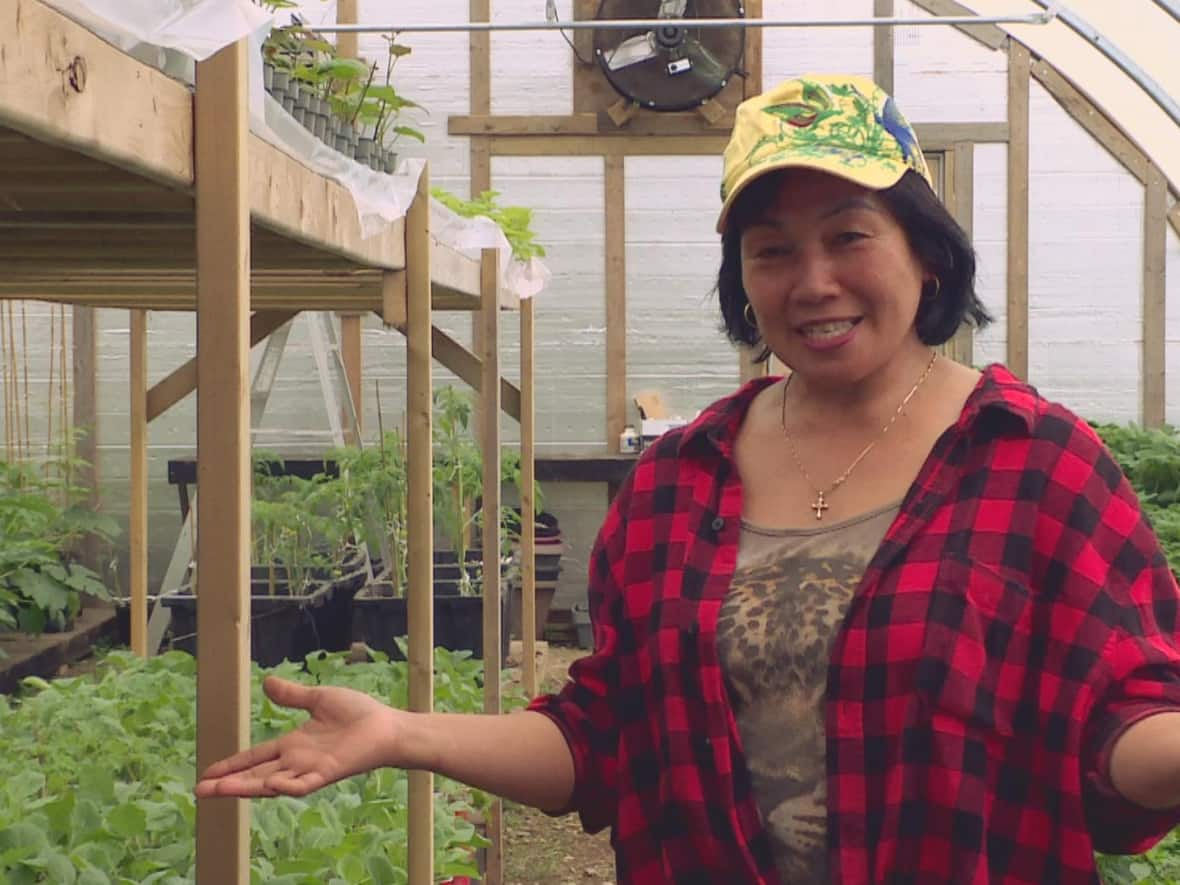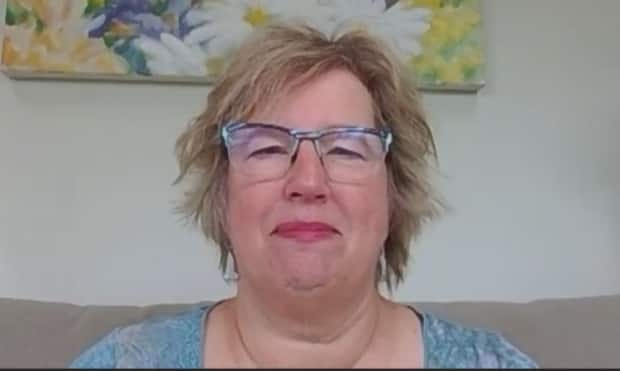Grand Falls gardeners tackle inflation with home-grown vegetables

As food prices rise, a gardening couple in northwestern New Brunswick are providing their community with affordable, healthy vegetables.
Rezel and Camille Rossignol own and operate Hearn Farm in Grand Falls, where they produce a wide variety of vegetables.
They include Chinese cabbage, tatsoi, peanuts, luffa, Asian spinach, butternut, onions and garlic, bitter gourd, Saskatoon sherry, and potatoes, most of them getting a head start in one of the farm's two greenhouses.
Although they may be doing it on a greater scale, the Rossignols are just among many New Brunswickers who have taken to growing food on their own land, often inspired by inflation.
WATCH | A Grand Falls, N.B., couple take home gardening to another level:
Rezel Rossignol grew up in a small farming village in Palimbang Sultan Kudarat, Philippines.
She credits her upbringing for nurturing her undying love for plants.
"I love watching them grow," she said. "From the seeds that you put in the dirt, until they bloom and produce, it is really satisfying to see."
In 2017, she and biochemist Camille Rossingnol got married in New Brunswick and started their garden together.

"When I met Camille, and he said 'I do farming,' I said 'Oh farming, it sounds good."
Rezel now tends to more than 50 species of vegetables in the controlled climate of her greenhouse, before transplanting them in the fields.
The vegetables are planted in small pots early in the year to encourage growth before the season begins.
This technique helps to ensure an early harvest and high yield, Rezel said.
"That's why I planted them ahead of time. That way we can harvest them early also because our season is very short."
Food security a goal
Camille said the farm helps provide food security for the community, and an option for people to buy fresh, something that's become harder to do at the grocery store.
"They wish they could buy it, but it's so expensive, it goes out of their budget," Camille said.
Together, Rezel and Camille have developed their own techniques for growing vegetables and have even experimented on rare species that are not commonly seen locally.
Vegetables such as the bitter gourd, bottle gourd and lufa grow in tropical climates, but with their greenhouses, Rezel is able to cultivate and harvest them here.
Camille said Reza amazes him with her raw instincts about farming.
"Me being a biochemist, I just analyze the soil, and she just goes through it and will tell me 'Oh, I don't think that will fit' and she's mostly right, just by the texture of the soil."
Growing interest in gardening
As with many pandemic-induced hobbies, COVID-inspired DIYers found a place in backyards and balconies with a newfound — or perhaps renewed interest in gardening.
Gardening in New Brunswick Canada is just one of many Facebook groups where green thumbs can gather virtually to discuss all things gardening in the province. The group has more than 16,000 members.
Everyday enthusiasts get into conversations about their plants, share tips and tricks and troubleshoot their challenges.
Karen Petersen is a gardening enthusiast whose budding love for the backyard grew with the pandemic. A frequent user of the Facebook group, she said a good mixture of new and experienced gardeners has helped her through her three years of gardening.

"It has just been a gold mine of information, it's been fantastic," Petersen said. "And I know that there's lots of people on there that are newbies like me. We just love the community."
Despite COVID numbers waning across the globe, the gardening trend continues to rise. New members join the group daily with questions about growing their own food.
Petersen thinks inflation has prompted more people to take up at-home horticulture.
"In the group itself there are people who are definitely struggling with the high cost of living and increase in food prices."
But once you get a garden established, it gives back so much, Petersen said.
Rezel Rossignol agrees. She plans more outlets that offer the community affordable and healthy options. She also hopes that in time more people will embrace trying to reap the fruits (or vegetables) of their own labours.
"Seeing everybody happy and healthy … that's a God given thing, you know," Camille said. "For me, that is the principle of having this little farm."

 Yahoo Movies
Yahoo Movies 
